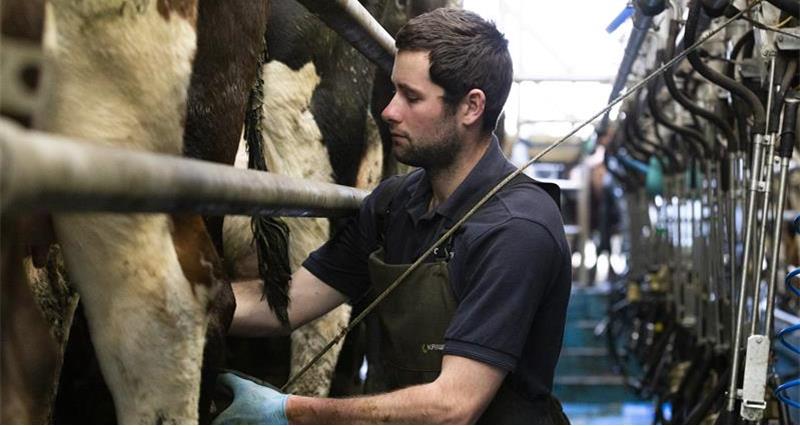The NFU’s Dairy Intentions Survey of almost 600 UK dairy farmers has found that insufficient returns, volatile markets and the scale of on-farm investment required are all reasons why many of Britain’s dairy farmers are thinking hard about their future in the sector.
In addition to those who are looking to stop production all together, a further 23% have said they are ‘unsure’ if they are going to continue production beyond the next two years.
Smaller enterprises producing less than a million litres of milk per year are also more likely to stop production before March 2025, compared to those producing higher volumes.
Based on figures from the ADHB, there are currently an estimated 7,500 dairy producers in Great Britain, a figure down 4.8% since last year.
The survey also revealed:
- Increases in input prices such as feed (84%), energy (83%), and fertiliser (74%) are all particular areas of worry.
- Over one third (36%) of those ceasing production are doing so due to retirement, with almost a fifth (18%) handing over their farm to the next generation.
- Over half (52%) of producers stopping production are unable to keep up with the scale of investment required for their enterprise to stay compliant, such as slurry storage, a factor that is highlighted as a main concern for the majority (91%) when considering whether to increase production in the future.
- NFU Dairy Board chair Michael Oakes said it is obvious these factors are putting the long-term resilience of dairy farming “under threat”, leading to a “crisis of confidence” amongst British dairy farmers.
The survey results identified that supply chain fairness was a key factor with almost 90% of dairy producers saying this was important to support future milk production.
New industry-wide contract regulation expected to come in later this year must support fairer, more transparent and accountable supply chains, said Michael. “But regulation isn’t a silver bullet,” he added. “With increasing global demand for British dairy, we know that the long-term future is bright for our sector,” said Michael.
“To ensure we maximise this potential, it’s imperative that government continues to work with us to ensure we have the right environmental, regulatory and trade framework in place to support the production of high quality, nutritious and sustainable food.”



